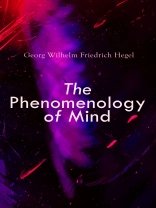The Phenomenology of Mind is Hegel’s most widely discussed philosophical work. Hegel described the work as an ‘exposition of the coming to be of knowledge’. This is explicated through a necessary self-origination and dissolution of ‘the various shapes of spirit as stations on the way through which spirit becomes pure knowledge’. Focusing on topics in metaphysics, epistemology, physics, ethics, history, religion, perception, consciousness, and political philosophy, it is where Hegel develops his concepts of dialectic (including the master–slave dialectic), absolute idealism, ethical life, and Aufhebung. It had a profound effect in Western philosophy.
关于作者
Georg Wilhelm Friedrich Hegel (1770-1831) was a German philosopher and an important figure of German idealism. He achieved recognition in his day and—while primarily influential in the continental tradition of philosophy—has become increasingly influential in the analytic tradition as well. Although Hegel remains a divisive figure, his canonical stature in Western philosophy is universally recognized.












